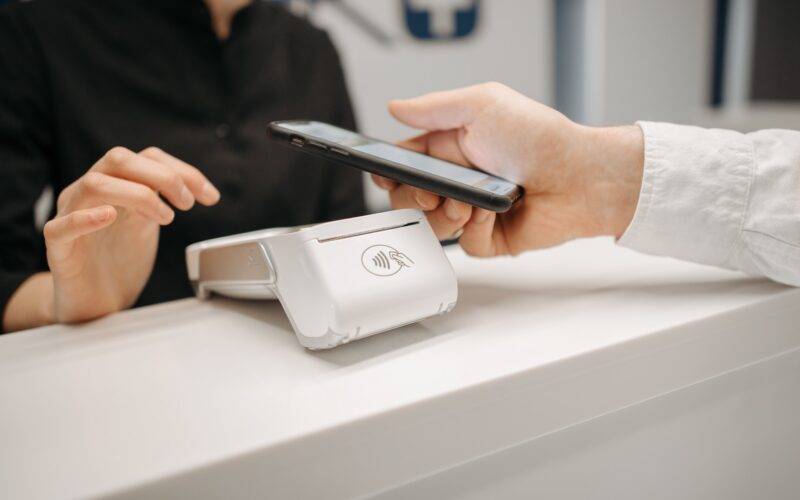How Many Banks Open High Risk Merchant Accounts ===
High risk merchant accounts are essential for businesses operating in industries with higher risks of fraud, chargebacks, and legal disputes. Unfortunately, not all banks are willing to open high risk merchant accounts due to the associated risks. Thus, businesses that require a high risk merchant account may face challenges in finding the right bank to work with. In this article, we will explore how many banks open high risk merchant accounts, the risks and benefits associated with such accounts, and alternatives for businesses that find it challenging to obtain high risk merchant accounts.
Finding High Risk Merchant Accounts
High risk merchant accounts are not offered by all banks, making it challenging for businesses to obtain one. However, some banks specialize in offering high risk merchant accounts to businesses in high-risk industries such as gaming, tobacco, and adult entertainment. These banks understand the nature of these businesses and are willing to take on the associated risks.
What are the eligibility criteria for high risk merchant accounts?
Banks that offer high risk merchant accounts have strict eligibility criteria that businesses must meet to qualify. These criteria vary between banks, but some common requirements include a history of chargebacks and fraud, a high-risk industry, and a minimum monthly transaction volume. Additionally, businesses must provide detailed documentation on their operations and financials to prove their legitimacy and ability to manage the risks involved.
Can new businesses get accepted for high risk merchant accounts?
New businesses may find it challenging to obtain high risk merchant accounts as they lack the financial history required to prove their legitimacy. However, some banks specialize in offering high risk merchant accounts to startups, provided they have a solid business plan and a detailed financial projection. These banks may also require a higher transaction fee or holdback reserve to mitigate the risks associated with new businesses.
Understanding the Risks of High Risk Merchant Accounts
Banks that open high risk merchant accounts face significant risks, including the potential for chargebacks, fraud, and legal disputes. Similarly, businesses that use high risk merchant accounts face risks such as account termination, frozen funds, and higher transaction fees. These risks can have a significant impact on a business’s financial health, reputation, and future operations.
What are the common risks to business owners that come with high risk merchant accounts?
Business owners that operate in high-risk industries and use high risk merchant accounts face several risks, including the potential for fraudulent transactions, chargebacks, and account terminations. Additionally, they may face higher transaction fees and holdback reserves, limiting their access to funds and reducing their profit margins. These risks can impact the viability of the business, making it essential to manage them proactively.
How to Apply for a High Risk Merchant Account
Applying for a high risk merchant account requires detailed documentation to prove the legitimacy of the business and its ability to manage the associated risks. Businesses must provide financial statements, business plans, and details of their operations, among other documents. Additionally, they must have a history of chargebacks and fraud, which can further impact their eligibility for a high risk merchant account.
What documents do I need to provide to apply for a high risk merchant account?
To apply for a high risk merchant account, businesses must provide comprehensive documentation on their operations and financials. This documentation may include business licenses, bank statements, financial statements, and business plans. Additionally, they must provide details of their history of chargebacks and fraud, if applicable.
How long does it take to get approved for a high risk merchant account?
The time it takes to get approved for a high risk merchant account varies between banks, but it typically takes between two to four weeks. However, the time may be longer for new businesses or those in high-risk industries. During the approval process, banks will review the documentation provided by the business and assess the associated risks.
Top Banks that Open High Risk Merchant Accounts
Several banks specialize in offering high risk merchant accounts to businesses in high-risk industries. These banks understand the nature of these businesses and are willing to take on the associated risks. Some of the top banks that open high risk merchant accounts include Bank of America, Wells Fargo, and Chase Bank.
What is the best bank for high risk merchant accounts?
The best bank for high risk merchant accounts varies depending on the specific needs and requirements of the business. However, some of the top banks that offer high risk merchant accounts have a reputation for exceptional service, competitive transaction fees, and proactively managing the associated risks.
Can I get a high risk merchant account from a local bank?
Local banks may not offer high risk merchant accounts due to the associated risks. However, some local banks may partner with larger banks that specialize in offering high risk merchant accounts. Alternatively, businesses can explore other payment processing options, such as PayPal or Stripe, which may offer lower transaction fees and more flexible requirements.
Benefits of Having a High Risk Merchant Account
Having a high risk merchant account can improve a business’s financial operations by reducing the risk of fraudulent transactions, chargebacks, and legal disputes. Additionally, it offers access to a broader range of payment options, improving the customer experience and increasing sales. High risk merchant accounts can also provide businesses with greater flexibility in managing their cash flow and financial operations.
How does a high risk merchant account improve my business?
A high risk merchant account can improve a business by reducing the risks associated with high-risk industries, protecting the business’s financial health and reputation. Additionally, it offers access to a broader range of payment options, improving the customer experience and increasing sales. High risk merchant accounts can also provide businesses with greater flexibility in managing their cash flow and financial operations.
Will having a high risk merchant account affect my credit score?
Having a high risk merchant account will not directly impact a business owner’s credit score. However, if the business fails to manage the associated risks, it can impact their financial health, which may indirectly affect their credit score.
Alternatives to High Risk Merchant Accounts
Businesses that cannot obtain a high risk merchant account may consider alternatives such as PayPal, Stripe, or Square. These payment processing options offer lower transaction fees and flexible requirements, making it easier for businesses to access financial services. Additionally, they have features such as fraud detection and chargeback protection.
What are the alternatives to high risk merchant accounts for businesses?
Alternative payment processing options for businesses include PayPal, Stripe, and Square, among others. These options offer lower transaction fees and flexible requirements, making them accessible to businesses that cannot obtain high risk merchant accounts.
How do I choose between a high risk merchant account and other payment processing options?
Choosing between a high risk merchant account and alternative payment processing options requires businesses to assess their specific needs and requirements. Businesses must consider factors such as transaction fees, associated risks, and features such as fraud detection and chargeback protection to make an informed decision.
Managing Your High Risk Merchant Account
Managing a high risk merchant account requires businesses to proactively manage the associated risks, such as fraud and chargebacks. Businesses must implement best practices such as using fraud detection software, providing excellent customer service, and maintaining accurate records to avoid account terminations or frozen funds.
How do I avoid chargebacks with my high risk merchant account?
Businesses can avoid chargebacks with their high risk merchant account by implementing best practices such as using fraud detection software, providing excellent customer service, and maintaining accurate records. Additionally, businesses can use chargeback management services to dispute illegitimate chargebacks proactively.
What are the best practices for managing my high risk merchant account?
Best practices for managing a high risk merchant account include implementing fraud detection software, maintaining accurate records, providing excellent customer service, and using chargeback management services. Additionally, businesses should proactively manage the associated risks and ensure compliance with industry regulations and guidelines.
In conclusion, high risk merchant accounts are essential for businesses that operate in high-risk industries. While not all banks offer high risk merchant accounts, several banks specialize in providing these services to businesses. However, businesses must meet strict eligibility criteria and provide comprehensive documentation to qualify. Additionally, businesses must manage the associated risks proactively, including chargebacks, fraud, and legal disputes. Alternative payment processing options such as PayPal, Stripe, and Square provide a viable option for businesses that cannot obtain high risk merchant accounts. By weighing the benefits and risks of high risk merchant accounts and alternative payment processing options, businesses can make informed decisions that improve their financial operations and protect their reputation.













